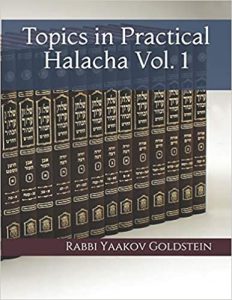*As an Amazon Associate I earn from qualifying purchases.
Children’s inheritance of communal positions held by father:
No custom or contract:[1] A son inherits his father’s position regarding all public matters that the father was empowered with. This however only applies if the son is capable of fulfilling the position. If the son is capable in fulfilling the position then he has priority over any other person, even if the other person is more skilled and capable than him. Thus, if the father was the appointed Chazan of a Shul, after his death the son inherits the position if he is capable of being Chazan, even if there are Chazanim who are greater than him.
Custom or contract:[2] The above law only applies in a case that there is no set custom in the community. If, however, the custom of the community is not to give automatic precedence to the son, then the community custom must be respected.
Inheritance of Rabbinical positions:[3]
An exception to the above rule is the inheritance of all positions relating to Keser Torah. All Rabbinical positions that are related to the teaching of Torah and giving of Halachic rulings are not inherited to the son, as the Torah is an inheritance to all the Jewish people.[4] Thus, if a Rav passed away, his position is not automatically inherited by his son if there is another person greater than him to fulfill the position. [Other Poskim[5] however rule that a son inherits his father’s position even regarding Rabbinical matters, such as inheriting the position of being the community Rav, even if there are others greater than him. Practically, despite the previous ruling of Admur, many communities[6], including Chabad communities, give and have given precedence to the son in inheriting his father’s position as the community Rav.[7] Some Poskim[8] rule that according to all, if the son is of equal stature to other potential candidates to fulfill the position, then he must be given precedence. Likewise, according to all, even if the son receives precedence, he must be appointed with the agreement of the congregation.[9]
Custom or contract:[10] The above dispute of law only applies in a case that there is no set custom otherwise. If however the custom of the community is not to give automatic precedence to the son, then the community custom must be respected. Likewise, according to all, if the Rav who passed away was signed to a contract for a limited amount of years, his son does not inherit his position.
Does a son in-law [or other relative] inherit his father in-laws [relatives] position? Some Poskim[11] rule a son in-law inherits his father in-laws position if there are no sons available for the position. The same would apply to a grandson.[12] Others[13] however rule that the law of inheritance of communal matters only applies to the son and not to any other relative. |
_______________________________________________
[1] Admur 53:33; M”A 53:33; Rashba 300; Sifri Shoftim 162; Kneses Hagedola; brought in M”B 53:83; See Piskeiy Teshuvos 53:25; Shevet Halevi 4:128
[2] Admur 53:34; See Tzemach Tzedek 21
[3] Admur 53:33; M”A 53:33; Rashdam Yoreh Deah 81; Asara Mamaros Chikur Din 2:19; Chasam Sofer 12
[4] See also Admur Hilchos Talmud Torah 4:1
A proof: The Chasam Sofer ibid brings a proof for this position from the fact we see Moshe wanted his son to take him over as leader and Hashem refused and instead had Yehoshua appointed.
[5] Rama Yoreh Deah 245:22; based on Rambam Melachim 1:7 that all positions are inherited forever by the descendents; Simchas Yom Tov 6 “Is Takana of Sages”; Ginas Veradim 3:7-8; opinion brought in M”B ibid; See all Poskim mentioned below.
[6] Various Rabbinic positions in Chabad communities have been inherited by the sons despite the above ruling of Admur. This occurred with the Rabbanus of Bnei Braq, of which Rav Moshe Landa inherited from his father; Rav Meir Ashkenazi of Kfar Chabad which inherited it from his father, and so on and so forth with various positions. To note that Rav Tzvi, the son of the Baal Shem Tov, took over his position after his passing, and so too the Mittler Rebbe took over his father’s position after his passing.
[7] See letter of the Maharil to Rav Ahron Starashela regarding the appointing of the Mittler Rebbe after the passing of the Alter Rebbe [printed in Beis Rebbe p. 190] “And so is proper, that the son inherit his father’s position”; See Beis Rebbe there footnote 3 “The Alter Rebbe merited that the Keser Torah be inherited also to his children after him” However see the letter written by Rav Pinchas Rezis who while making claims for why the Mittler Rebbe deserves the mantle of leadership, makes no mention of him being the son and thus having inheritance of the position. See Chasam Sofer 13 who seems to slightly retract his ruling in 12; See Maharam Shick Yoreh Deah 228
[8] Maharam Shick Yoreh Deah 228
[9] ibid
[10] See Admur 53:34; Tzemach Tzedek 21
[11] Response of Reb Shaul, printed in end of Teshuvas Harama; See Beis Yitzchak Yoreh Deah 2:70
[12] Beis Yitzchak Yoreh Deah 2:70; Simchas Yom Tov 6 [son of daughter has inheritance]; Divrei Chaim 1:53 [brother has inheritance]; Avnei Nezer Yoreh Deah 312:40
[13] Avodas Hagershuni 49


 Donate
Donate
Leave A Comment?
You must be logged in to post a comment.